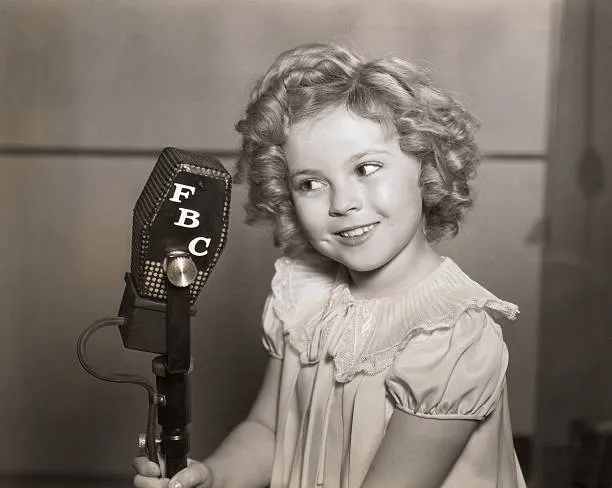Shirley Temple’s rise to fame in the 1930s was a beacon of hope and joy during a tumultuous time in American history. Born in Santa Monica, California, Temple’s early start in show business began with a contract at Educational Pictures, and by 1932, she had already become a national sensation. Her innocent and charming performances on screen mesmerized audiences, earning her the title of “the most popular star of the 1930s.”
One of Temple’s earliest breakout roles was in “Now and Forever” (1934), where she showcased her impressive singing and dancing skills as Penny Day, the young daughter of a carefree con man. Her spirited performance captured the hearts of the audience, making her a major box office draw.
In 1935, Temple starred in “Curly Top,” a romantic musical comedy where she played Elizabeth Blair, a charming young orphan who wins over the heart of a wealthy gentleman named Edward Morgan. Temple’s endearing portrayal of the characters and her iconic performances of songs like “Animal Crackers in My Soup” endeared her to audiences worldwide.
Temple’s next significant role came in 1936, when she played the titular character in “Dimples.” As Dolores “Dimples” Appleby, a street performer with a kind heart, Temple dazzled audiences with her energetic performances and toe-tapping dance routines. Despite some on-set feuds with her co-star, Frank Morgan, Temple’s determination and spirit shone through in the film.
The following year, Temple starred in “Bright Eyes” (1934), a comedy-drama where she played Shirley Blake, a young girl struggling to cope with her parents’ death. Temple’s heartwarming performance and rendition of the iconic song “On the Good Ship Lollipop” earned her a Juvenile Academy Award for her contributions to cinema, making her the first child to win an Oscar.

Shirley Temple (Image via Getty)
In 1935, Temple reappeared on the big screen with “The Little Princess,” a Technicolor film based on the 1905 novel by Frances Hodgson Burnett. As Sara Crewe, a brave and determined young heroine, Temple charmd audiences with her strong spirit and unwavering optimism. The film marked Temple’s final successful picture as a child star and cemented her status as a timeless cinematic icon.
As Temple transitioned to adult roles, she showcased her range and versatility in films like “I’ll Be Seeing You” (1944), where she played Barbara Marshall, a young woman struggling to overcome her past. Temple’s supporting role alongside major stars like Joseph Cotten and Ginger Rogers demonstrated her ability to adapt to more serious roles.
In “Since You Went Away” (1944), Temple played Bridget “Brig” Hilton, a mother struggling to care for her daughters during World War II. The film, which won the Academy Award for Best Original Screenplay, marked Temple’s first major dramatic role as an adult.
The 1940s saw Temple continue to make a name for herself in Hollywood, starring in films like “The Bachelor and the Bobby-Soxer” (1947), a romantic screwball comedy where she played Susan Turner, a young girl smitten with a playboy named Dickie Nugent. Temple’s performance showcased her comedic chops and chemistry with co-star Cary Grant.
Temple’s final notable role came in 1937 with “Heidi,” where she played the titular orphaned young girl who forms an unbreakable bond with her grandfather in the Swiss Alps. The film, based on the 1880 children’s book by Johanna Spyri, is considered one of Temple’s finest performances.
The Little Colonel (1935) remains Temple’s greatest film, featuring her iconic staircase routine with co-star Bill “Bojangles” Robinson. The film’s groundbreaking interracial performance, where Temple took Robinson’s hand in hers, is a testament to the power of cinema to transcend boundaries and break down barriers.
Shirley Temple’s legacy extends far beyond her impressive filmography. Her boundless energy, infectious optimism, and charming performances have made her an enduring symbol of hope and resilience. As the lights faded on her film career, Temple continued to shape the world through her subsequent roles in politics, serving as the U.S. Ambassador to Ghana and the first female U.S. Chief of Protocol. Her impact on Hollywood and American culture remains unwavering, solidifying her place as one of the greatest child stars of the Golden Age of Hollywood.
























